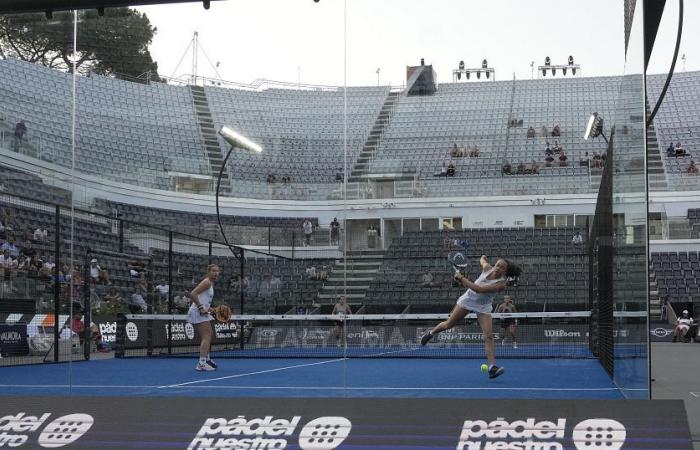Padel, a racket sport combining tennis and squash, is experiencing rapid growth in South Africa. In just a few years, it has established itself as an essential discipline, attracting a growing community of enthusiasts.
This phenomenon is particularly visible through the increase in the number of players, dedicated clubs, but also the general enthusiasm aroused by this activity.
Padel stands out for its ease of access, making it a perfect sport for beginners while offering technical challenges for more experienced players. According to Bridget Visee, padel coach, “padel is a game that is a sort of combination of squash and tennis. There are a lot of volleys and lobs. The idea is to win the net and play on the glass like you do in squash. C “So it's a great combination of both. It's also a very easy game to play, but harder to learn.” This unique blend allows every player, whatever their level, to have fun while developing their skills.
The pandemic, a triggering factor
The emergence of padel in South Africa is not only the result of a global trend, but also of a particular context. The COVID-19 pandemic has been an unexpected catalyst for the sport. When tennis and squash courts were forced to close during lockdowns, many South Africans looked for an alternative, and padel quickly emerged as an ideal solution. Imad al-Din Maki, passionate about padel, explains: “For me, COVID had a big impact on the game because no one could go to the tennis courts, or the squash courts, because you had to stay inside. What we had the right to do was to go to a gym for a very short period, in the morning or evening The Bay Hotel had an indoor court built by. Africa Fallenwho of course had a gymnastics license. So everyone who wanted to play a racquet sport would flock to The Bay Hotel, which really gave a boost to the activity.” This period of confinement therefore allowed padel to make itself known to a wide audience.
One of the most popular aspects of padel in South Africa is its social side. This sport, both accessible and dynamic, encourages interactions and meetings. Sarah Power, a sports enthusiast, testifies: “I think what I like most about padel is that it's a great workout and it's incredibly social. And the best part, it “is that we can do both at the same time.” The combination of friendliness and fitness largely explains the sport's growing popularity in the country.
A promising future
In just three or four years of existence in South Africa, padel has already brought together more than 100,000 players, an impressive figure for such a recent sport. Elian Wiener, director of Virgin Active Padel Club South Africaremains confident for the future: “We must not forget that this sport has only been around for three or four years in South Africa, and that there are already more than 100,000 players, which is not insignificant. But I really think “There are a number of factors that point to continued growth in player numbers.”
This rapid evolution of padel in South Africa is only the beginning. The sport is increasingly expanding beyond the big cities, with the appearance of new clubs in more peripheral neighborhoods and rural regions. “What we are seeing now is the emergence of clubs in the suburbs, in small towns, second-tier cities and even in rural areas. As these clubs multiply, the practice of padel will democratize more, and we will see a wide range of the population interested in it”explains Wiener.
Additionally, the social diversity of gamers is another factor driving this growth. Initially, padel was mainly played by South Africans from higher social classes, but today the sport reaches a much wider audience, with practitioners from various socio-economic categories.
Padel is experiencing similar global growth, with a 240% increase in the number of courts between 2021 and 2024, according to the International Federation of Padel (FIP).






